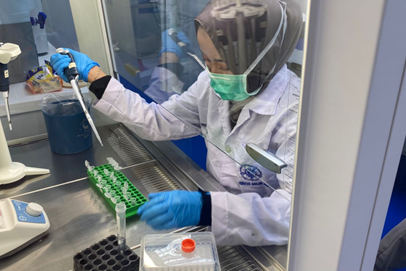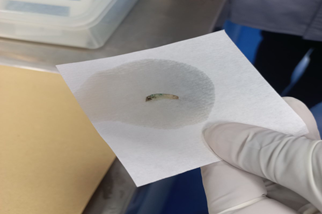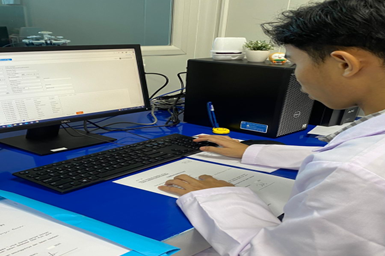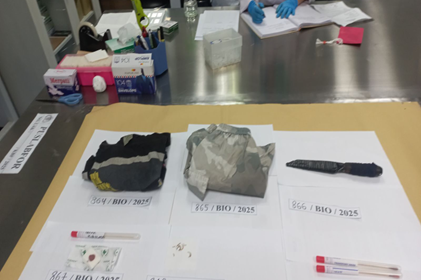Rindu Aurantika, a Master’s student from the Faculty of Biology at Universitas Gadjah Mada (UGM), took part in an internship at the Forensic Chemistry and Biology Division, specifically in the Biology-Serology Subdivision, at the Police Criminal Investigation Agency’s Forensic Laboratory Center (Puslabfor Bareskrim Polri) in Sentul, West Java. The internship ran from July 1st to 31st, 2025, under the academic supervision of Prof. Dr. Niken Satuti Nur Handayani, M.Sc., and field supervision by Riski Suranto, S.Si. This internship program was not only joined by UGM students but also involved participants from Universitas Negeri Jakarta (UNJ), Universitas Diponegoro (UNDIP), and Universitas Brawijaya (UB).
Over five weeks, the internship was designed in stages to help students understand the full forensic examination process, from the beginning to the end of the program. In the first week, students were introduced to the organizational structure of Puslabfor, the role of the Biology-Serology Subdivision, and administrative tasks like archiving forensic reports from police departments across Indonesia. This initial stage showed that archiving is not just paperwork—it plays a critical role in legal processes.
In the second week, students got to know the various labs within the Biology-Serology Subdivision, including the serology lab, human DNA lab, non-human DNA lab, and microbiology lab. In the third week, students participated in examining biological evidence such as bloodstains, semen, hair, and body tissue. They also worked with other items often found at crime scenes, like clothing, tissues, drink bottles, cigarette butts, and more. During the fourth week, the focus shifted to more complex samples like bones and nails. Students also conducted genetic analysis using a Genetic Analyzer based on capillary electrophoresis technology. In the fifth week of the program, students repeated DNA extraction procedures and learned how to input DNA data into the detainee database system. The program ended with the preparation of a final report summarizing everything they had learned during the month-long internship.
This experience was a valuable opportunity for Rindu’s academic journey. “Internship at Puslabfor allowed me to see how biological science is applied in real-world of forensics. Each step, from serology testing to DNA interpretation, requires a high level of accuracy because the results directly impact criminal investigations,” she shared. Beyond improving her technical skills in forensic biology, the internship also helped strengthen her discipline and sense of responsibility. It is hoped that programs like this will support the growth of forensic science in Indonesia, through better education and research opportunities. [Author: Rindu Aurantika]




